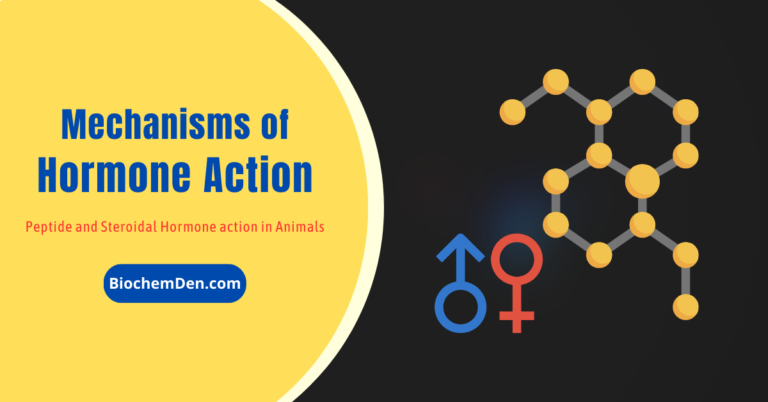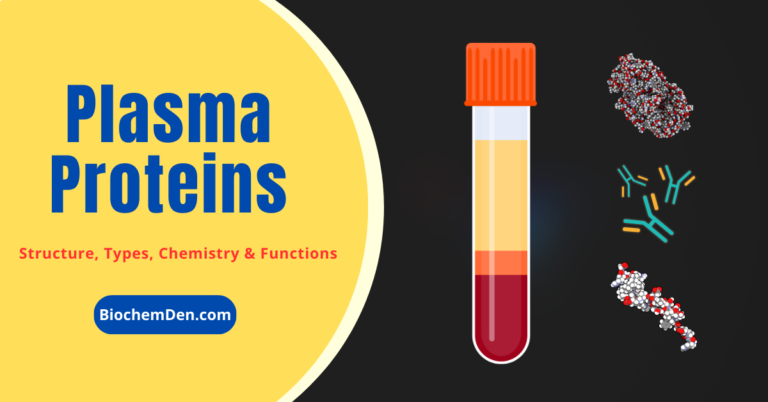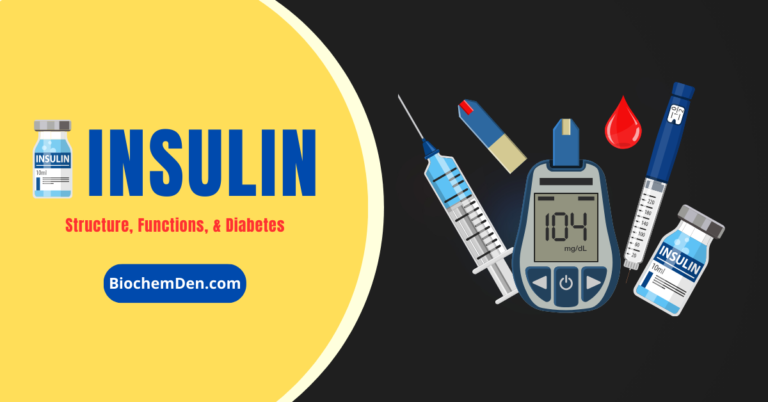The COVID-19 pandemic has caused a significant impact on the world, affecting millions of people globally. This disease, caused by the SARS-CoV-2 virus, has been a major threat to public health and has led to a global effort to contain and mitigate its effects.
The virus spreads through respiratory droplets, making it highly contagious and difficult to control. The pandemic has led to a significant global public health crisis, with the need for effective treatments and vaccines being more important than ever before.
Biochemistry plays a crucial role in the fight against COVID-19. Biochemistry is the study of the chemical processes and substances that occur within living organisms, which includes the study of biological molecules and their interactions. In the context of COVID-19, biochemistry research is essential in understanding the molecular mechanisms of the virus, developing effective treatments, and vaccines to combat the disease.
Biochemistry of COVID-19
To effectively combat COVID-19, it is crucial to understand the biochemical properties and mechanisms of the SARS-CoV-2 virus, which causes the disease. The virus is an enveloped, single-stranded RNA virus with spike proteins on its surface that bind to the human cell receptor ACE2. Once inside the cell, the virus replicates by hijacking the host cell machinery to produce new virus particles.
Biochemistry research has identified various targets for potential treatments and vaccines. For instance, the spike protein on the virus surface is a primary target for vaccine development and for inhibiting virus entry into human cells. Similarly, viral RNA polymerase is a target for antiviral drug development. Understanding the biochemical mechanisms of the virus is crucial to developing effective strategies to combat the disease.
Moreover, biochemistry research has also contributed to the development of diagnostic tests for COVID-19. The tests rely on detecting the genetic material of the virus, usually through RT-PCR or CRISPR-based methods. Biochemistry research has helped to develop these methods and optimize them for high sensitivity and specificity.
In summary, understanding the biochemistry of COVID-19 is crucial to developing effective strategies to combat the disease, including developing treatments, vaccines, and diagnostic tests.
Biochemistry Research for COVID-19
Biochemistry research is essential in the fight against COVID-19. Scientists and researchers are working tirelessly to understand the biochemical mechanisms of the virus and to develop effective treatments and vaccines.
One of the primary methods used in biochemistry research for COVID-19 is molecular modeling. Molecular modeling involves using computer simulations to understand the structure and function of biological molecules, including the SARS-CoV-2 virus and its interactions with human cells. Researchers are using molecular modeling to develop potential drug candidates that can inhibit viral replication or prevent virus entry into human cells.
Proteomics is another valuable tool used in COVID-19 research. Proteomics involves the study of the proteins expressed by an organism, which includes the viral proteins produced by SARS-CoV-2. Researchers are using proteomics to identify potential drug targets, study the host immune response to the virus, and understand the biochemical mechanisms of the disease.
Genomics is also playing a significant role in COVID-19 research. Genomics involves the study of an organism’s genes and genetic information. Researchers are using genomics to study the genetic variability of SARS-CoV-2 and to track the spread of the virus globally.
Biochemistry research efforts are also focused on developing effective treatments for COVID-19. This includes repurposing existing drugs that may be effective against the virus, as well as developing new drug candidates. Researchers are using biochemical screening methods to identify potential drug candidates and testing their efficacy in vitro and in vivo.
Overall, biochemistry research is essential in the fight against COVID-19. Researchers are using a range of biochemical tools and methods to understand the virus, develop effective treatments and vaccines, and track the spread of the disease.
COVID-19 Vaccines Development
One of the most significant ways in which biochemistry is playing a role in the fight against COVID-19 is through the development of vaccines. Vaccines work by stimulating the body’s immune system to recognize and fight off a specific pathogen, such as the SARS-CoV-2 virus.
Biochemistry research has been essential in the development of COVID-19 vaccines. The vaccines currently in use or undergoing clinical trials all rely on different strategies for generating an immune response against the virus. Some vaccines use inactivated or weakened forms of the virus, while others rely on the use of viral proteins or viral genetic material.
For instance, the Pfizer-BioNTech and Moderna vaccines are mRNA vaccines that use a piece of the SARS-CoV-2 virus genetic material to stimulate an immune response. The Johnson & Johnson and AstraZeneca vaccines are viral vector vaccines that use a weakened form of a different virus to deliver the genetic material from the SARS-CoV-2 virus to the body’s cells.
Biochemistry research has been crucial in the development of these vaccines. Scientists have used their knowledge of the biochemistry of the virus and the human immune system to identify potential targets for vaccine development and optimize the vaccine design. They have also used biochemical methods to produce and purify the viral proteins or genetic material used in the vaccines, as well as to test their safety and efficacy in clinical trials.
The development of COVID-19 vaccines is a significant achievement in the fight against the pandemic, and biochemistry has played a crucial role in this effort. Biochemistry research has enabled the development of different types of vaccines and optimized their design and production, paving the way for a global vaccination campaign to curb the spread of the virus.
What are Vaccines?
Vaccines are among the most effective ways to prevent and control infectious diseases. Vaccines stimulate the immune system to produce antibodies and memory cells that can recognize and neutralize future infections by the same or similar pathogens.
There are several types of vaccines for COVID-19 under development or in use, such as:
- Inactivated vaccines: These vaccines use killed or weakened versions of SARS-CoV-2 to elicit an immune response. Examples include Sinovac’s CoronaVac and Bharat Biotech’s Covaxin.
- Protein-based vaccines use purified or recombinant proteins derived from SARS-CoV-2 to elicit an immune response. Examples include Novavax’s NVX-CoV2373 and Sanofi’s Adjuvanted Recombinant Protein-Based COVID-19 Vaccine.
- Viral vector vaccines: These vaccines use modified versions of other viruses to deliver SARS-CoV-2 genes into cells and induce an immune response. Examples include Oxford-AstraZeneca’s ChAdOx1 nCoV-19 and Johnson & Johnson’s Ad26.COV2.S, and Sputnik V.
- RNA vaccines use synthetic messenger RNA (mRNA) molecules that encode SARS-CoV-2 proteins to induce an immune response. Examples include Pfizer-BioNTech’s BNT162b2 and Moderna’s mRNA-1273.
Some statistics on vaccines for COVID-19 are:
- According to WHO, as of March 25, 2021, there are more than 80 vaccine candidates in clinical development and more than 180 vaccine candidates in preclinical.
- Among the vaccine candidates in clinical development, 13 have reached Phase 3 efficacy trials, the final stage before regulatory approval.
- The vaccine candidates are based on different platforms, such as nucleic acid, viral vector, protein subunit, and inactivated virus. Some of these platforms are novel and have never been used for licensed vaccines.
- The first COVID-19 vaccines to receive emergency use authorization or approval were Pfizer-BioNTech’s Comirnaty and Moderna’s mRNA-1273, nucleic acid vaccines that use messenger RNA (mRNA) to instruct cells to produce a spike protein of the coronavirus.
- The most recent data on Comirnaty showed that the vaccine was 91% effective in preventing a COVID-19 infection. Moderna’s vaccine showed similar efficacy of 94.1%.
- Other promising vaccine candidates include AstraZeneca-Oxford’s AZD1222 and Johnson & Johnson’s Ad26.COV2.S are viral vector vaccines that use a harmless adenovirus to deliver genetic material from the coronavirus into cells. AZD1222 has an efficacy of 76%, while Ad26.COV2.S has an efficacy of 66%.
- Novavax’s NVX-CoV2373 is a protein subunit vaccine that uses purified pieces of the spike protein to elicit an immune response. It has an efficacy of 89.3%.
- Sinopharm’s BBIBP-CorV and Sinovac’s CoronaVac are inactivated virus vaccines that use killed versions of the coronavirus to induce immunity. BBIBP-CorV has an efficacy of 79%, while CoronaVac has an efficacy of 50.4%.
- Some COVID-19 vaccine candidates have raised ethical concerns because they use human fetal cell lines in their development or testing. These include AstraZeneca-Oxford’s AZD1222 and Johnson & Johnson’s Ad26.COV2.S, and CanSino Biologics’ Ad5-nCoV.
- The COVID-19 vaccine distribution and access is a global challenge that requires international cooperation and solidarity. WHO has launched COVAX, a global initiative that aims to accelerate the development and manufacturing of COVID-19 vaccines and guarantee fair and equitable access for every country.
Testing for COVID-19 and its Biochemistry
Biochemistry has also played a significant role in the testing for COVID-19. Testing is essential for identifying individuals who are infected with the SARS-CoV-2 virus, tracking the spread of the disease, and informing public health policies and interventions.
The most used test for COVID-19 is the RT-PCR (reverse transcription-polymerase chain reaction) test, which detects the viral RNA in a patient’s sample, such as a nasal swab. The test works by converting the viral RNA to DNA using the enzyme reverse transcriptase, amplifying the DNA using the polymerase chain reaction, and detecting the amplified DNA using fluorescent probes.
- Biochemistry plays a crucial role in the RT-PCR test. The enzymes used in the test, such as reverse transcriptase and DNA polymerase, are essential biochemical reagents. Researchers have also used their knowledge of the biochemistry of the virus and the human immune system to optimize the design of the probes used in the test to maximize their sensitivity and specificity.
- Serological testing is another type of test for COVID-19 that uses biochemical methods. Serological tests detect the presence of antibodies in a patient’s blood, which can indicate a past or current infection with the virus. The tests work by detecting specific proteins, such as the spike protein or the nucleocapsid protein, produced by the SARS-CoV-2 virus.
- Biochemistry research has been crucial in the development and validation of serological tests for COVID-19. Researchers have used their knowledge of the biochemistry of the virus and the human immune system to identify the most reliable viral proteins to use in the tests and to optimize the design of the tests. They have also used biochemical methods to produce and purify the viral proteins used in the tests, as well as to validate their accuracy and specificity.
The research has played a crucial role in the testing for COVID-19, enabling the development of reliable and accurate tests that are essential for controlling the spread of the virus and informing public health policies and interventions.
Diagnostic tests
Diagnostic tests are essential for detecting and monitoring COVID-19 cases and outbreaks. There are two main types of diagnostic tests for COVID-19: molecular tests and serological tests.
- Molecular tests detect the presence of viral RNA in samples collected from the respiratory tract of infected individuals. These tests use reverse transcription polymerase chain reaction (RT-PCR) to amplify and detect specific regions of the viral genome. Molecular tests are susceptible and specific but require specialized equipment and trained personnel.
- Serological tests detect the presence of antibodies produced by the immune system in response to COVID-19 infection. These tests use enzyme-linked immunosorbent assay (ELISA) to measure the levels of antibodies that bind to viral antigens, such as the spike protein. Serological tests are less sensitive and specific than molecular tests but are cheaper and easier to perform. Serological tests can also provide information about individuals’ and populations’ immune status and exposure history.
Some statistics on diagnostic tests for COVID-19 are:
- According to the World Health Organization (WHO), as of March 25, 2021, more than 1.1 billion molecular tests and more than 200 million serological tests have been performed worldwide.
- According to Johns Hopkins University, as of March 25, 2021, more than 400 million molecular and more than 100 million serological tests have been performed in the United States.
- According to Our World in Data, as of March 25, 2021, the global average of daily molecular tests per thousand people is 0.9, while the global average of daily serological tests per thousand people is 0.1.
Biochemistry and Treatment for COVID-19
Biochemistry is also playing a role in the development of treatments for COVID-19. Currently, there are several treatments available for COVID-19, including antiviral drugs, immunomodulatory drugs, and monoclonal antibodies.
- Antiviral drugs work by targeting the viral enzymes or proteins essential for the virus’s replication and spread. For instance, remdesivir is an antiviral drug that targets the viral RNA polymerase enzyme, which the virus uses to replicate its genetic material. Biochemistry research has been essential in the development of remdesivir and other antiviral drugs for COVID-19. Scientists have used their knowledge of the biochemistry of the virus and the human cells it infects to identify potential targets for drug development and optimize the drug’s design and delivery.
- Immunomodulatory drugs work by regulating the immune response to the virus, which can help reduce the severity of the disease. For instance, dexamethasone is an immunomodulatory drug that suppresses the immune system’s response to the virus, which can prevent the immune system from overreacting and causing damage to the body’s tissues. Biochemistry research has been crucial in the development of immunomodulatory drugs for COVID-19. Researchers have used their knowledge of the biochemistry of the immune system to identify potential targets for drug development and optimize the drug’s design and delivery.
- Monoclonal antibodies are another type of treatment for COVID-19 that uses biochemical methods. Monoclonal antibodies are laboratory-made proteins that mimic the immune system’s ability to recognize and neutralize the virus. They work by binding to specific viral proteins, such as the spike protein, and preventing the virus from entering human cells. Biochemistry research has been crucial in the development and production of monoclonal antibodies for COVID-19. Researchers have used biochemical methods to produce and purify the antibodies, as well as to test their safety and efficacy in clinical trials.
The biochemistry research has played a critical role in the development of treatments for COVID-19. By using their knowledge of the biochemistry of viruses and the human body, scientists have been able to identify potential targets for drug development and optimize the drug’s design and delivery.
The development of effective treatments is essential for reducing the severity of the disease and preventing hospitalizations and deaths.
Final words
The field of biochemistry has played a crucial role in the fight against COVID-19. Biochemistry has helped us understand the fundamental biology of the virus and its interactions with the human body, which has led to the development of vaccines, diagnostic tests, and treatments.
The development of effective vaccines has been a significant milestone in the fight against the pandemic, and biochemistry has been instrumental in their development and production.
Moving forward, biochemistry research will continue to be critical in the fight against COVID-19. Scientists will need to continue studying the virus’s biology and its interactions with the human body to improve vaccine efficacy, develop new treatments, and better understand the long-term effects of the disease.
Additionally, biochemistry research will be essential in preparing for future pandemics, as we seek to develop more robust and effective strategies for preventing and treating infectious diseases.
Overall, the role of biochemistry in the fight against COVID-19 highlights the importance of interdisciplinary collaboration and the critical role of scientific research in addressing global health challenges. By continuing to invest in biochemistry research, we can improve our ability to fight current and future pandemics and protect public health around the world.
Discover more from Biochemistry Den
Subscribe to get the latest posts sent to your email.





